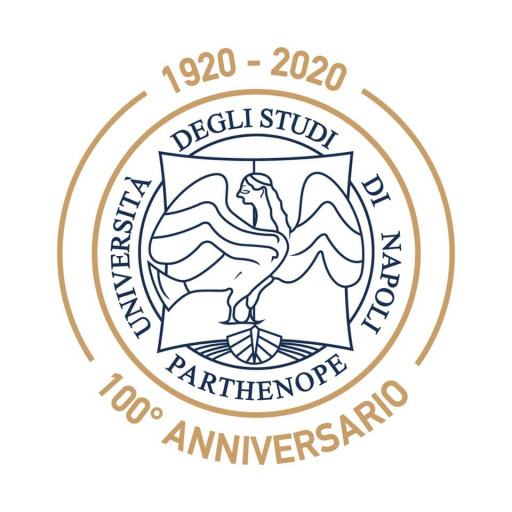Photos of university / #ubridgeport
The Master of Science in Counseling at the University of Bridgeport is a comprehensive program designed to prepare students for a rewarding career in mental health and educational counseling. This program provides students with the essential knowledge, skills, and practical experience necessary to effectively support individuals in various settings, including schools, community agencies, and private practice. The curriculum emphasizes a strong foundation in counseling theories, developmentally appropriate interventions, ethical practices, cultural competency, and research methods. Students will explore diverse counseling modalities and learn to develop personalized treatment plans tailored to the unique needs of their clients. The program also integrates hands-on training through supervised practicum and internship opportunities, allowing students to apply their learning in real-world environments under the guidance of experienced professionals. Dedicated faculty members bring a wealth of industry experience, mentorship, and research expertise, fostering a supportive academic community focused on student success. Upon graduation, students will be well-equipped to pursue licensure as Licensed Professional Counselors (LPC) or similar credentials, enabling them to serve effectively in a variety of counseling roles. The university’s commitment to innovative teaching, ethical standards, and social justice principles ensures that graduates are prepared to make meaningful, positive impacts in their communities. This program is ideal for individuals passionate about helping others and seeking to advance their careers in counseling, whether they are new to the field or professionals seeking advanced credentials.
The Counseling program at the University of Bridgeport is designed to prepare students for a rewarding career helping individuals, families, and communities to overcome psychological, emotional, and behavioral challenges. This comprehensive curriculum combines both theoretical knowledge and practical skills, ensuring graduates are well-equipped for licensed professional counseling practice. Students will engage in coursework that covers foundational topics such as counseling theories, human development, ethics, and multicultural competence, as well as specialized areas like mental health counseling, school counseling, and substance abuse counseling. The program emphasizes experiential learning through supervised practicum and internship placements, providing real-world experience in diverse settings. Faculty members are experienced practitioners and educators dedicated to supporting students' academic and professional growth. Upon completing the program, graduates will be prepared to seek licensure as professional counselors, enabling them to work in hospitals, schools, community agencies, and private practice. The program also encourages ongoing professional development and lifelong learning to adapt to the evolving needs of clients and the counseling profession. Emphasizing a client-centered and culturally sensitive approach, the Counseling program at the University of Bridgeport aims to foster compassionate, ethical, and effective professionals committed to making a positive impact in their communities. Whether students are interested in direct client work, program development, or academic research, this program offers a solid foundation for diverse career pathways in mental health and human services.
Program requirements for the Counseling degree at the University of Bridgeport include a combination of coursework, practical experience, and comprehensive assessments designed to prepare students for professional practice in counseling settings. Prospective students must hold a bachelor’s degree from an accredited institution, with a strong academic record demonstrating proficiency in relevant fields such as psychology, human development, or social sciences. Applicants are typically required to submit official transcripts, letters of recommendation, a personal statement outlining their interest in counseling, and a resume or curriculum vitae. Additionally, a background check may be necessary to ensure suitability for working with vulnerable populations.
The program coursework covers core areas including counseling theories and techniques, ethics and legal issues in counseling, human development, group counseling, multicultural counseling, assessment and diagnosis, and career development. Students are expected to engage in classroom learning complemented by practical training, which involves supervised internships and practica in diverse settings such as mental health clinics, schools, or community agencies. These practical components are essential for developing hands-on skills and gaining real-world experience under professional supervision.
To be eligible for graduation, students must complete a minimum number of credit hours as stipulated by the program curriculum, typically around 60 to 66 semester credits. Each course is designed to meet specific learning outcomes, with many including assessments such as examinations, research projects, case studies, and presentations. Students also participate in ongoing evaluations to ensure they meet competency standards in counseling practices and ethics.
Further requirements include maintaining a specified minimum GPA throughout the program, often around 3.0 on a 4.0 scale, to demonstrate academic proficiency and readiness for professional work. Students pursuing licensure or certification must also pass relevant licensing exams, which test their knowledge and skills according to state or national standards. The program emphasizes the development of professional identity, ethical practice, cultural competence, and effective communication skills, all necessary components for successful counseling practice.
In summary, the University of Bridgeport’s Counseling program requires applicants to have a relevant undergraduate degree, submit application materials, complete rigorous coursework with practical internships, maintain satisfactory academic performance, and fulfill specific practical and assessment requirements. These comprehensive requirements ensure graduates are well-equipped to serve diverse populations and meet the standards of professional counseling licensure and accreditation bodies.
The University of Bridgeport offers various financial aid options to support students pursuing degrees in Counseling. Prospective and current students can explore federal and state financial aid programs, including Pell Grants, Stafford Loans, and work-study opportunities, to help offset the cost of tuition and related expenses. The university also provides scholarships specifically designated for graduate students in counseling programs, which are awarded based on merit, academic achievement, or financial need. Additionally, students are encouraged to complete the Free Application for Federal Student Aid (FAFSA) to determine their eligibility for federal financial assistance. The university’s financial aid office offers personalized counseling to guide students through the application process, explain eligibility requirements, and assist with planning their finances throughout their studies.
Moreover, the Counseling program may have specific scholarships or assistantships available for students demonstrating exceptional promise or contribution to the field. These opportunities can include Teaching Assistantships, Research Assistantships, or practicum stipends, which not only provide financial support but also valuable professional experience. The university promotes a flexible payment plan to make education more accessible, allowing students to pay tuition in installments over the semester or academic year. It is advisable for students to regularly review their financial aid status and maintain good academic standing to remain eligible for ongoing support.
In addition to institutional aid, students are encouraged to seek external scholarship programs offered by professional counseling organizations, local community foundations, and private donors, many of which are advertised through the university’s office of financial aid or counseling department. The university’s commitment is to ensure that all students have financial resources to complete their education successfully and prepare them for meaningful careers in counseling and mental health services. Overall, the Financing studies at the University of Bridgeport strive to make counseling education affordable through a combination of institutional aid, external scholarships, loans, and flexible payment options, allowing students to focus on their academic and professional growth without undue financial burden.
The University of Bridgeport offers comprehensive Counseling programmes designed to prepare students for diverse roles within mental health services. The curriculum emphasizes both theoretical understanding and practical application of counseling techniques across various settings, including schools, community organizations, and private practice. Students enrolled in these programmes benefit from a curriculum that blends foundational courses in psychology, social work, and human development with specialized training in counseling methodologies, ethics, and multicultural competence. The programmes often include supervised practicum components, allowing students to gain hands-on experience while receiving professional feedback. Graduates are equipped with the skills necessary to assess client needs, develop treatment plans, and implement evidence-based interventions to promote mental wellness. The university’s faculty comprises experienced professionals with backgrounds in clinical psychology, counseling, and social services, ensuring that students receive mentorship from industry leaders. In addition, the programmes are designed to meet the licensure requirements in various jurisdictions, enabling graduates to pursue licensure as licensed professional counselors or clinical mental health counselors, depending on the specific qualification pathways available. The University of Bridgeport also offers flexibility through part-time and online learning options, accommodating working professionals seeking to advance their careers. Overall, the counselling programmes at University of Bridgeport are aimed at cultivating skilled, ethical, and compassionate counselors who are prepared to serve diverse populations with sensitivity and competence, addressing the growing demand for mental health professionals in the community.








